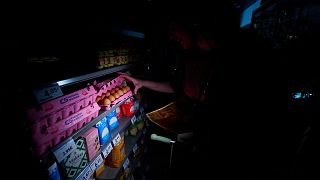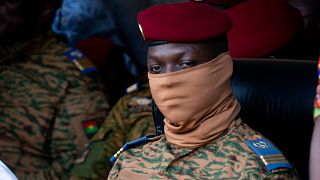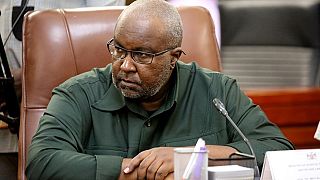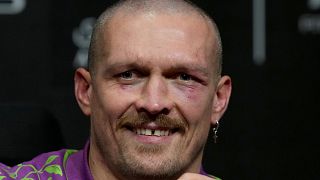Ebola virus
The UN health agency said Tuesday that a second suspected case of infection by the deadly Ebola virus had been detected in Ivory Coast.
World Health Organization (WHO) spokesman Tarik Jasarevic said that as of Monday, there had been one confirmed and one suspected case, with nine contacts identified so far. No deaths have been reported.
He said the WHO was "very concerned" about the ability of the virus to spread in the West African country's economic hub Abidjan, with a population of more than four million.
Ebola, which is transmitted through close contact with bodily fluids, causes severe fever and, in the worst cases, unstoppable bleeding.
The confirmed case has been identified as an 18-year-old from Guinea who travelled overland, arriving in Abidjan last Wednesday aboard a bus. When she left Guinea, she was already exhibiting symptoms that continued to intensify.
She was admitted to a hospital on Thursday with a fever and is currently receiving treatment.
"Preliminary investigations and genomic sequencing to identify the strain show that it is likely the Zaire strain of the virus," Jasarevic told AFP. "Further investigations are required to confirm these early results."
That strain was behind a four-month-long Ebola outbreak that claimed 12 lives in Guinea earlier this year, which was declared over on June 19.
The same strain killed more than 11,300 people mostly in Guinea, Liberia and Sierra Leone between 2013 and 2016.
Bid to 'identify contacts'
Jasarevic said there was "no indication" that the case in Ivory Coast was linked to the cases in Guinea.
Ivory Coast began vaccinating high-risk populations within 48 hours of the report of the confirmed case.
Residents in the Deux Plateaux neighbourhood of her neighbourhood of Abidjan were among those vaccinated.
"We know that the patient stayed here (at Deux Plateaux) before going to the hospital, so all the people around who are the contact cases had to be vaccinated," said Ivorian Health Minister Pierre Demba.
"We expect to reach 2,000 people in the next few days", he added, including those who travelled with the infected young woman and those who were in contact with those travellers.
WHO vaccine doses positioned in Guinea have now been moved to Ivory Coast. There are now 5,000 doses in the country -- 3,000 doses of a Johnson & Johnson vaccine and 2,000 doses of a Merck jab.
Experts are using the so-called ring vaccination strategy, administering doses to people who have come into contact with a confirmed Ebola patient, as well as first responders and health workers.
The Ebola case in Ivory Coast is the third this year after the Democratic Republic of Congo and Guinea.
It is the first known case of Ebola in Ivory Coast since 1994.
Regional health officials said they were working to track down people who may have been in contact with her in her home region in the north of Guinea.
She travelled more than 1,500 kilometres (930 miles) by bus to reach Abidjan.
"Currently all members of her family are with us at the isolation centre," local health director Mamadou Hady Diallo told AFP.
"We are continuing investigations to identify the contacts," he said.
AFP













Go to video
Ivorian rapper Didi B releases new album ahead of historic concert in Abidjan on 3rd May
01:30
Ineligible to stand, Gbagbo enters the Ivorian election by other means
01:13
Uganda declares end to Ebola outbreak
01:00
Tidjane Thiam removed from electoral list ahead of presidential election
Go to video
Tidjane Thiam nominated to run in Ivory Coast presidential election
Go to video
Paris hosts the 4th edition of African Cinema Days featuring Côte d'Ivoire